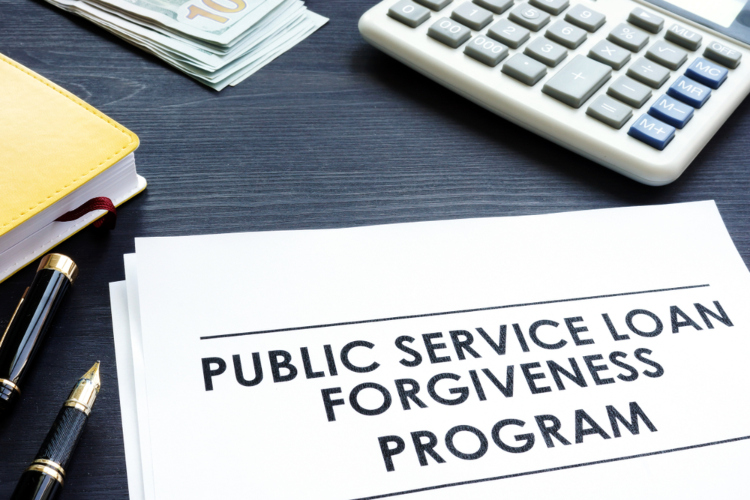Public service attorneys win important victory in Dept of Ed loan-forgiveness lawsuit

Image from Shutterstock
When the U.S. Department of Education changed its interpretation of Public Service Loan Forgiveness regulation, it did not adhere to notice standards mandated under the Administrative Procedure Act, and those changes were arbitrary and capricious, a federal court found Friday.
The U.S. District Court for the District of Columbia action was brought by the American Bar Association and four lawyers—two of whom worked for the ABA—who were dropped from the PSLF program in 2016. For three of the four plaintiffs, the Feb. 22 court order remanded their PSLF denial letters to the department for further consideration. The lawsuit was filed in December 2016.
“I’ve worked for governments and nonprofits for over a decade. The PSLF always gave me and my family some sense of security. The court’s ruling captures exactly how I felt when the DOE changed its rules midstream. It really was arbitrary and capricious,” Geoffrey Burkhart, one of the three plaintiffs whose denial letters were remanded to the DOE, told the ABA Journal in an email.
Burkhart joined the ABA in 2014 as an attorney and project director with the Division for Legal Services before becoming deputy director with the ABA Center for Innovation. In July 2014 he received a FedLoan Servicing letter confirming the eligibility of his loan payments for the PSLF program, according to the memorandum opinion, but in October 2016 he received another letter, stating that after “further research and after consulting with the Department,” it had reversed the previous determination, because the ABA did not “provide a qualifying service.”
Between 2009 and 2017, Burkhart estimates that his federal student loans have grown from less than $156,000 to more than $200,000. He is now the executive director of the Texas Indigent Defense Commission.
“We are carefully considering all our options going forward and it is our hope that the department will take seriously its responsibility to comply with the law when re-considering the claims of eligibility, for these borrowers and others,” Chong S. Park, a Ropes & Gray partner who represents the plaintiffs, said in a statement.
A fourth individual plaintiff, who was a lawyer with Vietnam Veterans of America, was denied his summary judgment motion, on the basis that the record does not support his claim. Also, the Feb. 22 finding granted a defense summary judgment motion against the ABA, finding that the Department of Education determination that the ABA was not a public service organization in regards to the PSLF program was not a final agency action, so APA requirements don’t apply.
“We are gratified with the Court’s finding that the Department of Education implemented the PSLF program in an arbitrary and capricious manner with respect to two former ABA employees. We hope the Department will follow the Court’s guidance and reaffirm the PSLF eligibility of all former and current ABA employees,” Jack L. Rives, executive director of the ABA, wrote in an email to the ABA Journal.
Brian J. Field, an assistant U.S. attorney who represents the Department of Education, did not immediately respond to an ABA Journal request for comment.
According to the opinion, internal communication between the Department of Education and FedLoan Servicing supports the plaintiffs’ assertion that the department changed its interpretation of the regulation before it issued the denial letters. U.S. District Court Judge Timothy J. Kelly rejected the department’s argument that the denial letters didn’t have an immediate impact on the individual plaintiffs.
“This is nonsense. In the face of growing debt burdens, the Individual Plaintiffs structured their careers and long-term financial plans around their eligibility for the PSLF Program. The Department’s determinations quite obviously had an ‘immediate’ and ‘significant’ impact on their ability to plan their careers and finances, despite the fact that they have not had (and may never have) the opportunity to submit an application for loan forgiveness,” his opinion states.
Part of the College Cost Reduction and Access Act of 2007, people who may qualify for the PSLF program are employed by government or non-profit organizations, according to the Department of Education’s federal student aid website. Also, those eligible for the program must work in public service for 10 years and make 120 qualifying loan payments after Oct. 1, 2007. Jobs with labor unions, partisan political organizations and for-profit groups do not qualify.
Besides the American Bar Association, other organizations that have been denied employer certification for the PSLF program include the the American Immigration Lawyers Association and some American Civil Liberties Union offices.
Others affected include grade school teachers and college professors, according to emails, Tweets and Facebook comments sent to National Public Radio, following a 2018 piece on the PSLF program.
Also, the New York Times detailed the story of an Oregon man who teaches adolescents seeking high school equivalency diplomas. He discovered in 2015 that he was enrolled in an ineligible payment plan for PSLF, according to a 2017 article. He then made extra payments, to pay off his balance, but then FedLoan incorrectly reported that he was past due on making monthly payments, according to a 2019 Your Money column in the New York Times.



